
Ousmane Dembele explains decision to join PSG from Barcelona
Ousmane Dembele has cited Luis Enrique as a key reason why he decided to leave Barcelona for Paris Saint-Germain.
1970-01-01 08:00
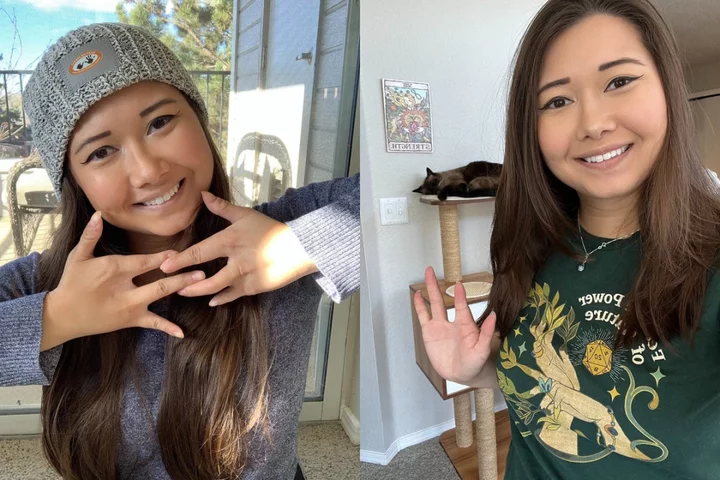
Woman with four digits ‘identified with Mickey Mouse growing up’ wants to be role model she never had
A 27-year-old woman with a rare genetic disorder who could only identify with Mickey Mouse while growing up due to the shape of the Disney character’s hands is trying to be the role model she never had as a social media influencer, to show people with disabilities they are “fully worthy and capable” of achieving anything. Rochelle Muir, who lives in Colorado, was born with ectrodactyly, which means she has three fingers and a thumb on each hand, two toes on her right foot, and four toes on her left foot. The condition causes difficulties in buying footwear, and with relationships – with one of her ex-boyfriends splitting up with her due to the possibility of their child being born with ectrodactyly – but she is now happily partnered with Charles, 31, a primary school counsellor who, along with her father Bill, is her “biggest cheerleader”. Rochelle, who is a client engagement manager for a healthcare company, could identify with characters such as Mickey Mouse growing up as he also has four digits, but she said “being like a cartoon is not exactly the role model you want”. She now posts pictures and videos on her social media platforms to educate others about ectrodactyly, raise awareness of the limb difference community, and share her hobbies, including gaming. “I remember specifically always loving the characters which had brown hair whenever they were in Barbie movies because I thought, ‘Oh, she’s like me!’,” she told PA Real Life. “But I never had that feeling when it came to my limb differences.” Rochelle has never let the disorder hold her back despite being teased and bullied at school, but when she entered the dating world in her 20s, she faced rejection multiple times and felt she was not “capable or worthy of having an amazing relationship”. “I’ve never been rejected over something that I couldn’t change about myself, something I was born with, and that was probably the first hit to my confidence with my limb differences where I felt awful about being born the way I am, about being disabled,” she said. “I just thought, I’m never going to find a meaningful relationship, I’m not worthy, I’m not capable, and that was the dialogue that kept going through my brain over and over again.” Rochelle has since removed “that nasty little voice out of (her) head”, found love with partner Charles, and shared her story publicly on social media, as she wants to “uplift” others among the disability community and show the world that “disabled is not a dirty word”. She said she is no longer “worried about showing (her) true self” and wants to encourage others to do the same. “Most people usually point out the negatives, but there are so many great positives with going and finding other people that look like you, other people you can connect with, and just creating this amazing community where you can uplift each other,” she said. “That’s one of the things I love about social media so much because when I came out about my limb differences, other people reached out and said, ‘Hey, I look exactly like you, this is so exciting, I’ve never seen anyone else that has the same hands as me’. “So it’s one of my favourite things now – and, yes, it’s sad that we didn’t have that growing up, but at least it’s there now and we can have that moving forward.” Ectrodactyly is a rare genetic disorder, and symptoms can vary, the National Organisation for Rare Disorders says. Rochelle underwent surgery to minimise the gap between her fingers and remove the longer toe on her right foot, enabling her to have improved grip and wear shoes from a young age. However, finding the right shoes has been an ongoing challenge and, when she was younger, she could not understand why she could not wear the same shoes as “able-bodied” people. “I remember specifically, there was a time, I think I was about five, that I tried to get my mum to buy me a pair of flip flops – they were pink, and they had butterflies and flowers on them,” she said. “My mum was so heartbroken because she couldn’t fully explain to me, ‘No, you can’t wear these shoes, they are going to be too dangerous for you’. “She eventually just caved and got me the shoes, and we were going up the escalator to go to the next floor in the mall, and I tripped, and we fell. “Ever since then, I’ve thought, I’m going to wear shoes that will stay securely on my feet.” Throughout her life, Rochelle has used humour to “defuse” awkward or uncomfortable situations and to enhance her confidence, but when it came to dating, for the first time in her life she felt self-conscious and “unworthy of having a real relationship”. She remembers one boyfriend who “was like a deer in the headlights” when he saw her feet for the first time, and another who ended the relationship over the possibility of their child being born with ectrodactyly. “He talked to his family, and his mum at the time said, ‘You need to decide whether you want to have kids because if you do, you have to break up with her’,” Rochelle explained. “The relationship ended, and I thought, I can’t blame him, but when I spoke to my friends, they said, ‘You’re amazing. What’s wrong with having a child with a limb difference?’ “That’s when I realised that I had internal ableism, where I told myself that having a disability is awful – ‘you’re not capable, you’re not worthy of having an amazing relationship’.” Ableism is discrimination in favour of able-bodied people – and it was at this point that Rochelle decided she wanted to do something about the lack of representation for people with ectrodactyly on social media. This “lit the fire” in her to share her story publicly for the first time, aged 25, and she has never looked back. Since then, she has launched her own Instagram, TikTok and YouTube channels on which she discusses ectrodactyly, limb differences and other disabilities, along with her hobby of gaming, and she has met Charles. Reading positive comments and messages, including from mothers of children who describe her as “an amazing role model”, has been “heart-warming” and makes her emotional – and she wants to continue to “fight ableism and bring more representation for the limb difference community”. “The biggest thing for me is representation for the limb difference community, but also for other disabilities as well, because the more we have that out there, the more of a norm it will be,” she said. “I want to be that role model, that person I wanted to look for in social media growing up, that person that younger me would be proud of and say, ‘Oh yeah, I know her, she’s so awesome, I’m just like her’. “It’s a younger me that inspires me to keep going forward and talking about these things, and I want to give the message that disabled is not a bad word, it’s not a dirty word, and you are fully worthy and capable of anything you put your mind to.” Find out more about Rochelle and her social media channels at beacons.ai/goodmornindreamer Read More Tempted to try barefoot running? Here’s what you need to know Can a vegan diet help with hot flashes in menopausal women? Why are wellbeing experts concerned about the ‘lazy girl job’ trend? Tempted to try barefoot running? Here’s what you need to know Can a vegan diet help with hot flashes in menopausal women? Why are wellbeing experts concerned about the ‘lazy girl job’ trend?
1970-01-01 08:00
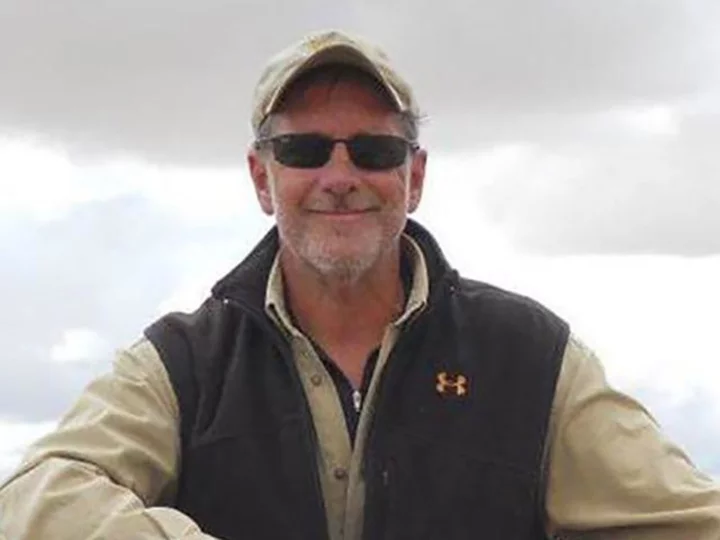
American dentist sentenced to life in prison for murder of wife while on African safari
An American dentist has been sentenced to life in prison for the murder of his wife of 30 years while the couple was on a safari in Zambia, the US Attorney's Office for the District of Colorado said in a news release.
1970-01-01 08:00

US FAA holding runway safety meetings after close call incidents
WASHINGTON The U.S. Federal Aviation Administration said on Tuesday it will hold runway safety meetings at 90 airports
1970-01-01 08:00
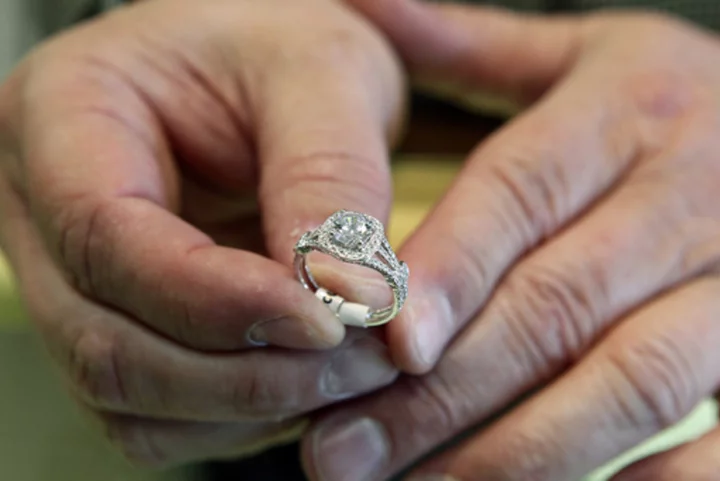
Millennial Money: Do you need a prenup?
There’s a common misconception that prenuptial agreements are only for protecting the assets of an ultra-wealthy person from their spouse, but they can do much more
1970-01-01 08:00

Central African Republic country profile
Provides an overview of the Central African Republic, including key facts about this African state.
1970-01-01 08:00

South China Sea: Philippines resupplies Spratlys shoal troops
Manila claims mission success despite Beijing's attempts to "block, harass and interfere".
1970-01-01 08:00

Cambodia country profile
Provides an overview of Cambodia, including key dates and facts about this South East Asian nation.
1970-01-01 08:00
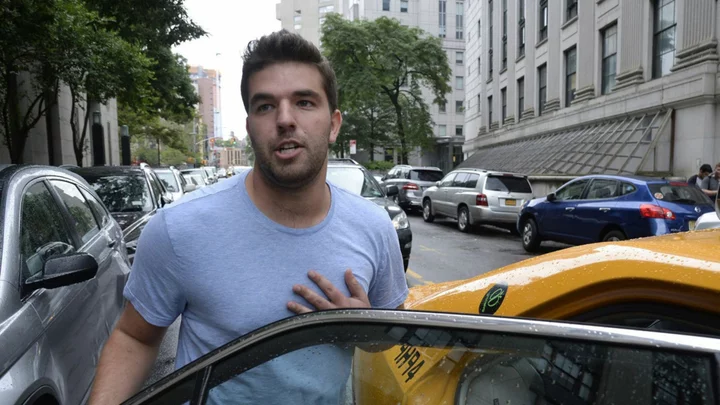
Fyre Festival 2 tickets are on sale if you can believe it
Remember Fyre Festival? The "dumpster fire" of a luxury weekend getaway, filled with many an
1970-01-01 08:00
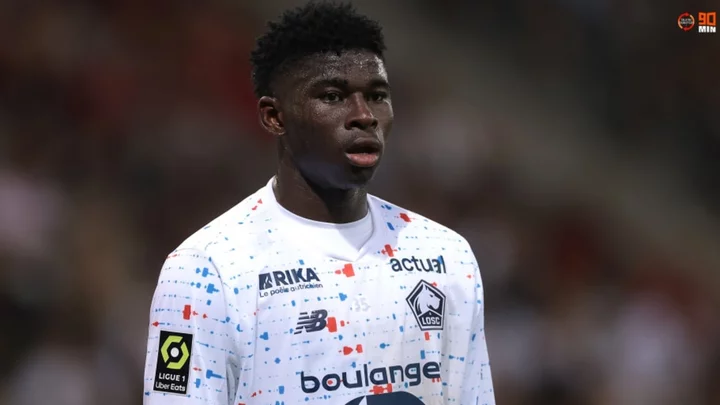
Brighton close on Carlos Baleba & open loan talks for Arsenal midfielder
Brighton near a €30m (£25.5m) deal for Lille midfielder Carlos Baleba as they bid to replace Moises Caicedo in central midfield.
1970-01-01 08:00
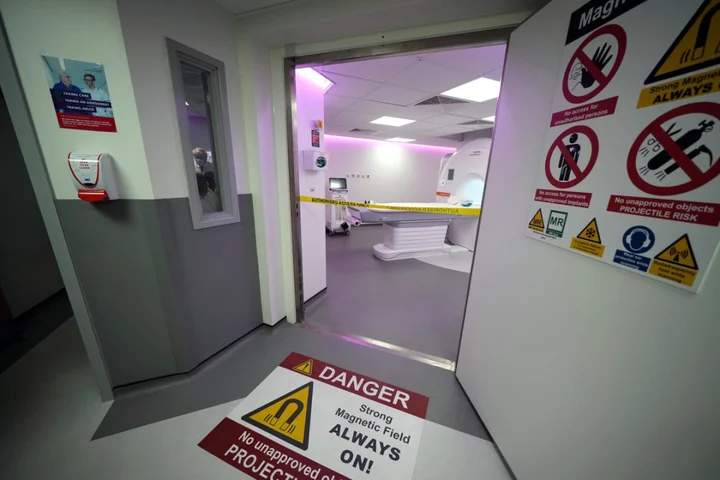
Prostate screening ‘could save lives’ – the symptoms and risk factors you need to know
There are more than 47,000 men diagnosed with prostate cancer every year in England but new research says using MRI scans can reduce deaths caused by the disease. Current tests usually detect the level of the protein prostate-specific antigen (PSA) in the blood, but scientists say this has meant overdiagnosis and overtreatment of low-risk cancer. The Reimagine study, by University College London, University College London Hospitals NHS Foundation Trust and King’s College London, invited 303 men aged between 50 and 75 to have a screening MRI and a PSA test. Of those men, 48 (16%) had an MRI that indicated prostate cancer despite having a median PSA density – 32 of those had lower PSA levels than the current screening benchmark, meaning they would ordinarily not have been referred for investigation. After NHS assessment 29 were diagnosed with cancer that required treatment, and three were diagnosed with low-risk cancer with no need for treatment. Prof Caroline Moore, consultant surgeon at UCLH, chief investigator of the study and NIHR research professor, called the findings “sobering”. She said: “Our results give an early indication that MRI could offer a more reliable method of detecting potentially serious cancers early, with the added benefit that less than 1% of participants were ‘over-diagnosed’ with low-risk disease.” What is prostate cancer? Prostate cancer is the UK’s most common male cancer. It affects the prostate – a walnut-sized gland that sits beneath the bladder and surrounds the urethra in people born with male sex organs. Its main purpose is to help produce semen (the fluid that carries sperm). Prostate cancer can develop when cells in the prostate start to grow in an uncontrolled way. While some prostate cancers grow quickly and spread, others grow too slowly to cause any problems and therefore will never need any treatment. What are the risk factors “Prostate cancer is a disease we tend to see in older age groups (over-50s), but there are exceptions, as with any form of cancer,” said Dr Sanjay Mehta, GP at The London General Practice. According to Prostate Cancer UK black men are at a higher risk – one in four black men will get prostate cancer in their lifetime (compared to one in eight for other men). The risk increases after the age of 45. Family history is important too; your father or brother has had prostate cancer or your mother or sister has had breast cancer, your risk is higher. What are the symptoms? Often there aren’t any signs in the early stages, so be aware of your own risk factors and chat to your doctor if concerned. Prostate Cancer UK have an online risk checker you can use too. Mehta said to watch out for urinary symptoms and changes to how you urinate. “So frequency, where you need to go more often. Hesitancy, where you’re standing over the toilet bowl and a period of time will pass before you’re able to pass urine, and ‘dribbling’, where you’ve finished but find you’re still passing when you walk away. “These are common in older men anyway. But if it’s new for you, and you find you’re having to go more often at night, and you’re having hesitancy or urgency, see your doctor.” Other things to get checked include erectile dysfunction, blood in your urine, and any new and unexplained lower back pain. “Then there are general systemic symptoms, like lethargy, lack of appetite,” added Mehta. “Again, these things often happen anyway, but if it’s a change for you and it’s been happening for a couple of weeks, see your doctor.” How is prostate cancer diagnosed and treated? First, your doctor will chat through your symptoms and history with you. “The next step would involve an examination, including a rectal examination of the prostate,” said Mehta, before referral for further investigations. “I appreciate this can put some men off seeing their doctor but it is a very helpful way of assessing things”. After diagnosis, treatment depends on the stage of the cancer and what’s suitable for each individual, but it may include surgery or radiotherapy. Caught early, prostate cancer is generally very treatable. And even with advanced prostate cancer, treatments have come a long way. Read More Charity boss speaks out over ‘traumatic’ encounter with royal aide Ukraine war’s heaviest fight rages in east - follow live Keep fit to avoid heart rhythm disorder and stroke, study suggests How to give your home a proper summer sort out What you really need to do in autumn to keep your lawn in shape
1970-01-01 08:00
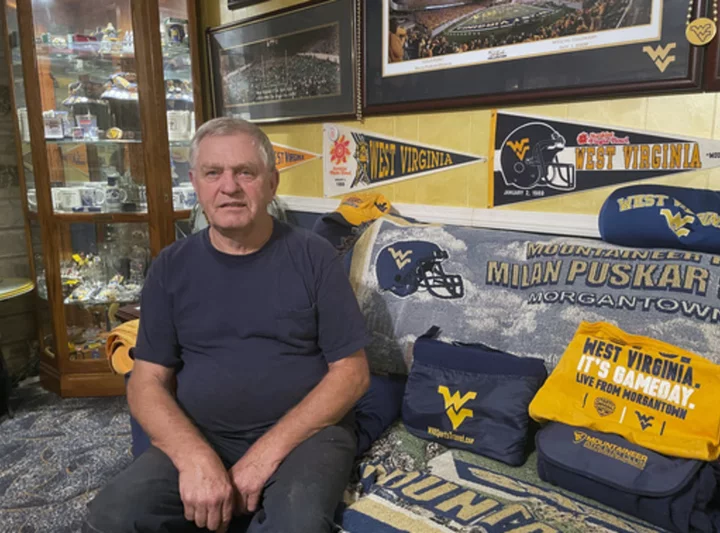
Conference realignment will mean longer trips and greater costs for traveling college football fans
College sports realignment will bring big challenges to fans who travel to see their teams on the road
1970-01-01 08:00
